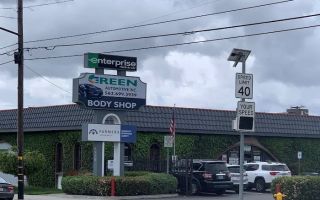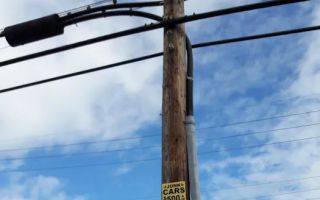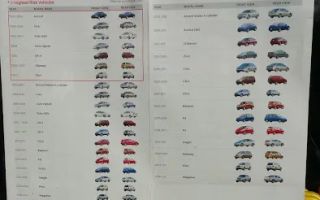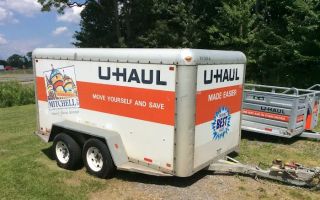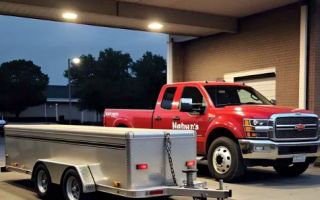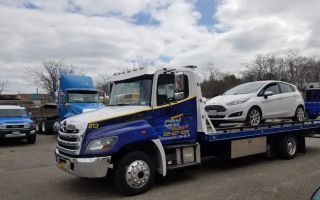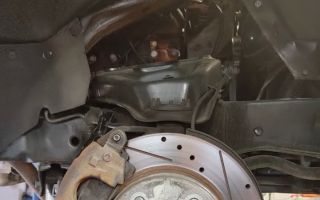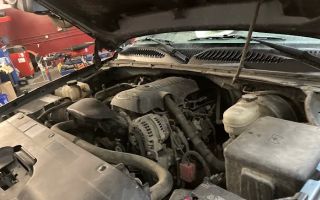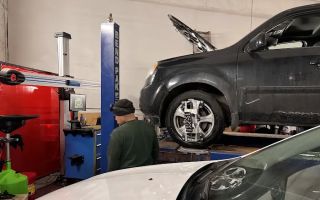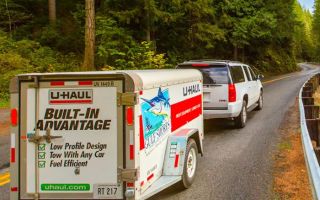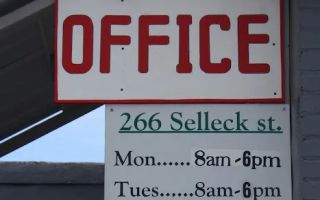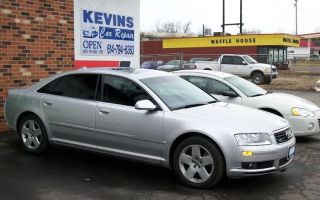What Happens When a Tire Blows Out on the Freeway at Night?
It was late at night when it happened. I was driving down the freeway, the hum of the tires on the road providing a comforting rhythm as the miles passed. The road ahead was mostly empty, the occasional car passing by, but I didn’t expect the unexpected. Without warning, I heard a sharp, violent sound—a loud pop—and the car jerked to one side. In that instant, I knew what had happened: I had a tire blowout.

MR. TIRE INC.
2078 New York Ave, Huntington Station, NY 11746, USA
1. The Initial Shock of a Tire Blowout
When a tire blows out, especially on a dark, empty freeway, the shock is overwhelming. My heart raced, and my hands gripped the steering wheel tightly as the car began to pull to one side. The force of the blowout can cause the car to shake violently. The loss of air pressure can affect how the car handles, making it feel like the vehicle is fighting against you. In that moment, your reflexes take over. You must stay calm, focus, and act quickly. I eased off the accelerator, keeping my hands firm on the wheel while gently steering to regain control. If you panic, the situation can escalate quickly. My main goal was to keep the car from swerving into another lane, which could have been disastrous, especially with the darkness surrounding me.

MR. TIRE INC.
2078 New York Ave, Huntington Station, NY 11746, USA
2. The Importance of Staying Calm
Staying calm is key in this type of situation. Your mind has to process what happened and quickly assess the best course of action. As soon as I realized the tire had blown out, I made sure to avoid slamming on the brakes. Sudden braking after a blowout can cause the car to lose stability, especially if it's the front tire that has burst. Gradually, I slowed the car down, carefully steering toward the shoulder of the freeway. The shoulder was my only safe space, and the headlights from my car barely illuminated the area, leaving me with limited visibility.
3. Finding a Safe Spot
Once I was able to control the car, my focus shifted to finding a safe place to stop. The shoulder of the freeway isn't always wide, especially at night, and I had to be mindful of oncoming traffic. I made sure to pull over as far as possible, turning on my hazard lights to alert any nearby drivers of my situation. The lights provided a small comfort in the darkness, and I hoped they would keep me visible to passing vehicles. With the car safely stopped, I took a deep breath, grateful for my training to remain calm. However, the journey wasn’t over—it was time to assess the damage and figure out the next steps.
4. Assessing the Damage in the Dark
In the darkness of the night, it was hard to see exactly what had happened to the tire. I got out of the car, using the flashlight app on my phone to inspect the situation. The blown tire was clearly flat, but I needed to verify whether the rim had also been damaged. A quick check revealed no damage to the rim, which meant it was possible to change the tire and continue my journey. However, this wasn’t always going to be the case. Sometimes, a blowout can cause damage to the rim, or even the suspension system, making it impossible to drive until repairs are made. I was relieved that, for now, the damage seemed minimal.
5. Handling the Situation: Tire Change or Call for Help?
At this point, I had two options: I could attempt to change the tire myself or I could call for help. While I had the knowledge to change a tire, being alone on the freeway at night in an unfamiliar area made it feel like a more complicated task. The last thing I wanted was to risk further injury or trouble by attempting something that could have been done more safely with assistance. I opted to call a roadside assistance service, knowing they would have the necessary equipment and experience to handle the situation more effectively.
6. Calling Roadside Assistance
Roadside assistance is a lifeline during a tire blowout, especially in the middle of the night. I quickly pulled out my phone and dialed the roadside service number. Fortunately, I had a subscription with a service that provides 24/7 assistance, so help was on the way. As I waited, I made sure to stay inside the car, as it’s often safer than standing outside in the dark. The last thing you want is to become a target for other drivers who may not see you in time.
7. Waiting for Help
Waiting in the dark for help can feel like an eternity. With the ticking of the clock and the occasional rush of passing cars, the silence was almost deafening. The minutes felt longer than they were. I made sure my hazard lights were on and double-checked that I was positioned as safely as possible on the shoulder. It’s a reminder of how important it is to ensure your vehicle’s emergency kit is stocked with tools, a flashlight, and other essentials that can help in times like these. At night, these tools can make all the difference in managing a roadside emergency.
8. When Help Arrives
Eventually, I saw the flashing lights of the tow truck approaching. The sight of the flashing blue and red lights was a relief, knowing I wouldn’t have to handle this situation alone. The tow truck driver quickly assessed the situation and got to work. The tire change was completed swiftly, and in no time, I was back on the road. It’s a comforting feeling when the professionals arrive, and I was grateful for the assistance. However, I also learned an important lesson about preparation and knowing when to rely on the help of experts.
9. Post-Tire Blowout: Lessons Learned
Once the tire was replaced and I resumed my journey, I reflected on the events of the night. The experience of a tire blowout on a freeway, especially at night, can be terrifying. However, with the right mindset, knowledge, and preparation, it’s possible to handle the situation safely. Keeping calm, knowing when to call for help, and ensuring you have a roadside assistance plan in place can turn a dangerous situation into just a minor inconvenience. Next time I’m on the road, I’ll be even more prepared for the unexpected, knowing that I’ve learned valuable lessons about tire safety and emergency preparedness.

